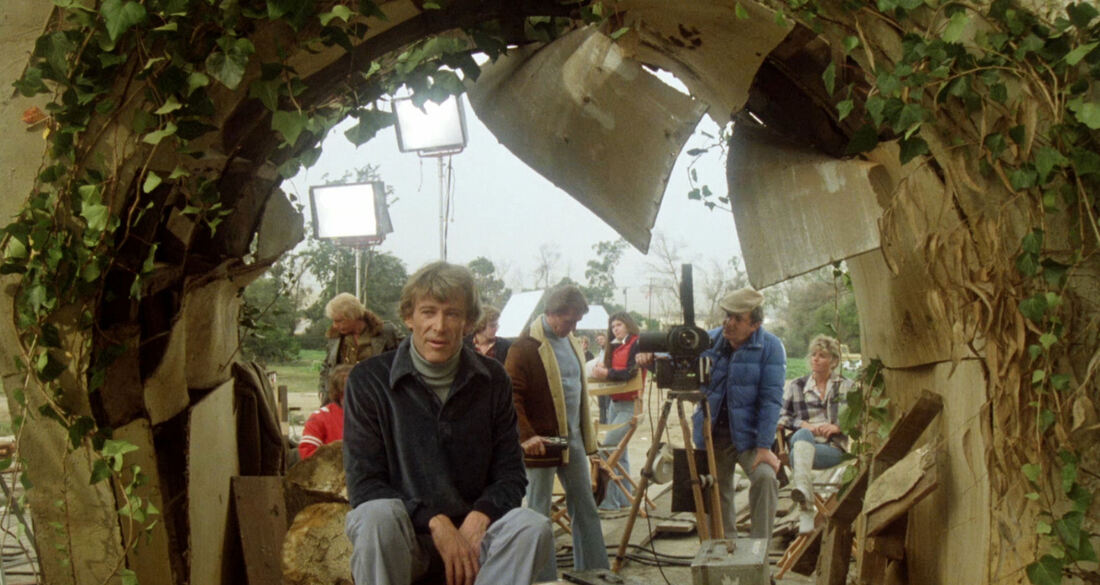|
When movies still meant something both in terms of cultural allure and the fantasy fulfillment they provide, Richard Rush's The Stunt Man is a dazzling work of late-era new Hollywood, being both an ode to the craft and artistry of stuntwork while also managing to be a subversive albeit playful examination of hierarchal-industrial filmmaking and the combative relationship between artistry and commerce. The toxic relationship between egomaniacal director - played to perfection by Peter O'Toole - and his stunt man - an aimless Vietnam vet who is cast in the film out of desperation - provides ample opportunities for a thematic investigation related to Hollywood as a whole, yet it also could be interpreted as a larger investigation of into the state of the American polity itself, one in which capital is often resting above labor on the hierarchy of perceived progress due to the embracement of laissez-faire ideology. Sure, The Stunt Man could be simply viewed as an investigation into egomania yet the lack of autonomy the film showcases across its characterizations suggests otherwise. Cameron, a newcomer to the screen, is manipulated ad nauseam but other actors - namely the actress and ex-lover of Peter O'Toole's director character - are also coerced. The actions of O'Toole characterization themselves are arguably influenced for the worse by the restraints of commercial filmmaking which demands short-term results over long-term craftsmanship - he is simply a cog himself in the machinery of industrial filmmaking. Cameron, the Vietnam vet turned stuntman, has been a cog in the machine that is American imperialism, and while the stunt work at first offers him economic rewards, it becomes apparent his body itself has just been re-contextualized to another powerful apparatus of America, a utility for the interests of others - in this case, the Hollywood machine. Richard Rush's direction here really stands out, the camera's gaze manipulating the viewer at nearly every turn, the audience is caught between artifice and naturalism much like Cameron, unsure what is real and what is manufactured movie magic. The apparatus of government and Hollywood are juxtaposed thematically, elucidating the opportunism intrinsic to those who wield the power of such institutions. There is little autonomy for the artist or individual against such power structures. The visualization of Peter O'Toole descending from the heavens in his on-set crane like a goddamn deity forever and always.
0 Comments
Leave a Reply. |
AuthorLove of all things cinema brought me here. Archives
June 2023
|

 RSS Feed
RSS Feed
